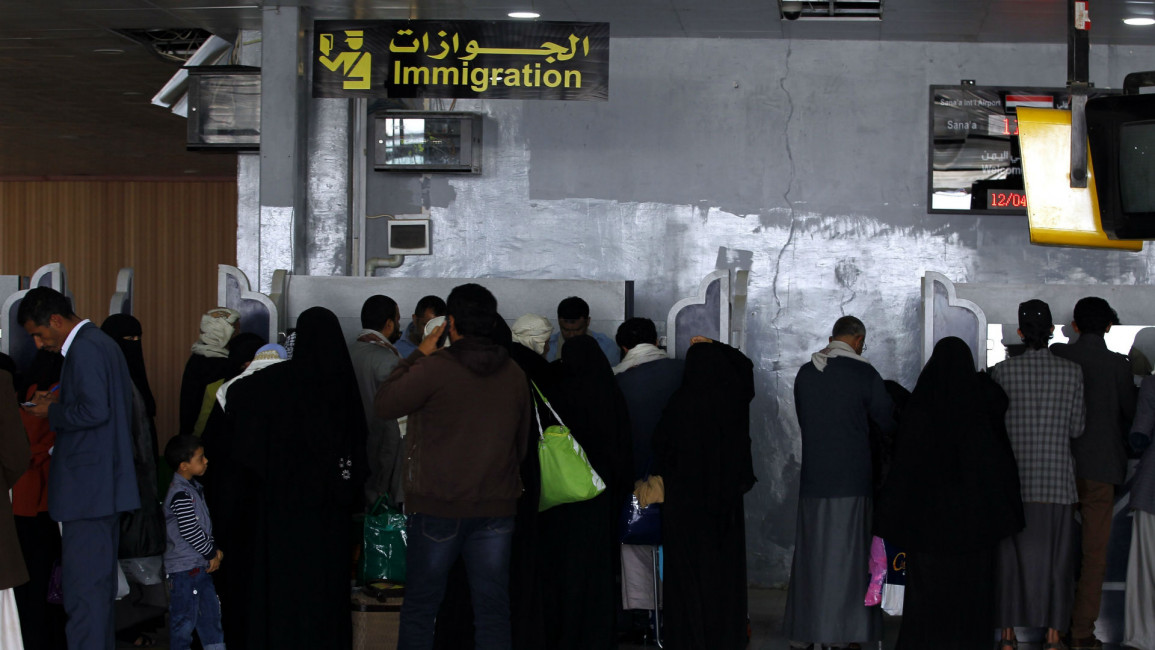Yemenis fleeing coronavirus in China enter Aden 'without medical checks'
The passengers, who flew out of China over fears of the deadly coronavirus outbreak, travelled via the Sudanese capital Khartoum on Yemen’s Al Saeeda Airlines, local Aden Alghad reported.
None of the passengers underwent medical tests on arrival at Aden International Airport on Saturday morning, the reports added, triggering fears over a potential outbreak in the war-torn country.
Yemen is already one of the most impoverished states in the Middle East, but its infrastructure has further deteriorated in the last five-years because of an ongoing conflict that pits Houthi rebels against the government-backed Saudi-led coalition.
Read also: No, coronavirus won't turn you into a 'zombie', Malaysia says
More than 100,000 people have already died since the war broke out in 2014 and exacerbated with the Saudi-led military intervention just months later in March 2015.
Yemen has not yet confirmed any cases of the dead coronavirus, which has since spread to more than 24 countries, despite many governments imposing unprecedented travel bans on people coming from China.
According to an AJ+ report published on Sunday, some 170 Yemeni students studying in Wuhan where the virus initially broke out, have yet to recieve assistance from the Yemeni government.
Twitter Post
|
"Most of the students are here on government sponosrships but to this day, the government has not paid towards the student dues," one Yemeni student says in the AJ+ Arabic video, which notes a number of Arab nations have already flown their nationals out of China.
The World Health Organisation has already declared the outbreak a global emergency, and the Chinese death toll has risen to 362 while total infections reached over 17,000, surpassing the SARS epidemic of two decades ago.
On Sunday the first foreign death from the virus was reported in the Philippines.
On Saturday, a biotech executive said no manufacturer will have a coronavirus vaccine ready for use before the middle of 2020, despite an intensive global effort.
"The challenge is that it could quickly be given to millions of people. The responsibility for its safety is therefore very important. Even going quickly with technology like mRNA, no manufacturer will be able to have a vaccine ready by the summer, or even by the autumn,” said Stephane Bancel, chief executive of Moderna Therapeutics, one of several entities involved in an all-out international effort to create a vaccine as soon as possible for the deadly SARS-like virus.
"We need approved vaccines so that if there are mutations within a strain of virus, we can produce vaccines in large quantities within a few months.”
So far, the majority of the victims of the virus have been elderly individuals with pre-existing health conditions, such as diabetes and liver cirrhosis.
The virus has already confirmed cases across the world, including China, Australia, Cambodia, Hong Kong, India, Japan, Macau, Nepal, The Philippines, Singapore, South Korea, Sri Lanka, Taiwan, Thailand, Vietnam, Canada, US, Britain, Finland, France, Germany, Italy, Russia, Sweden, Spain and the United Arab Emirates.



